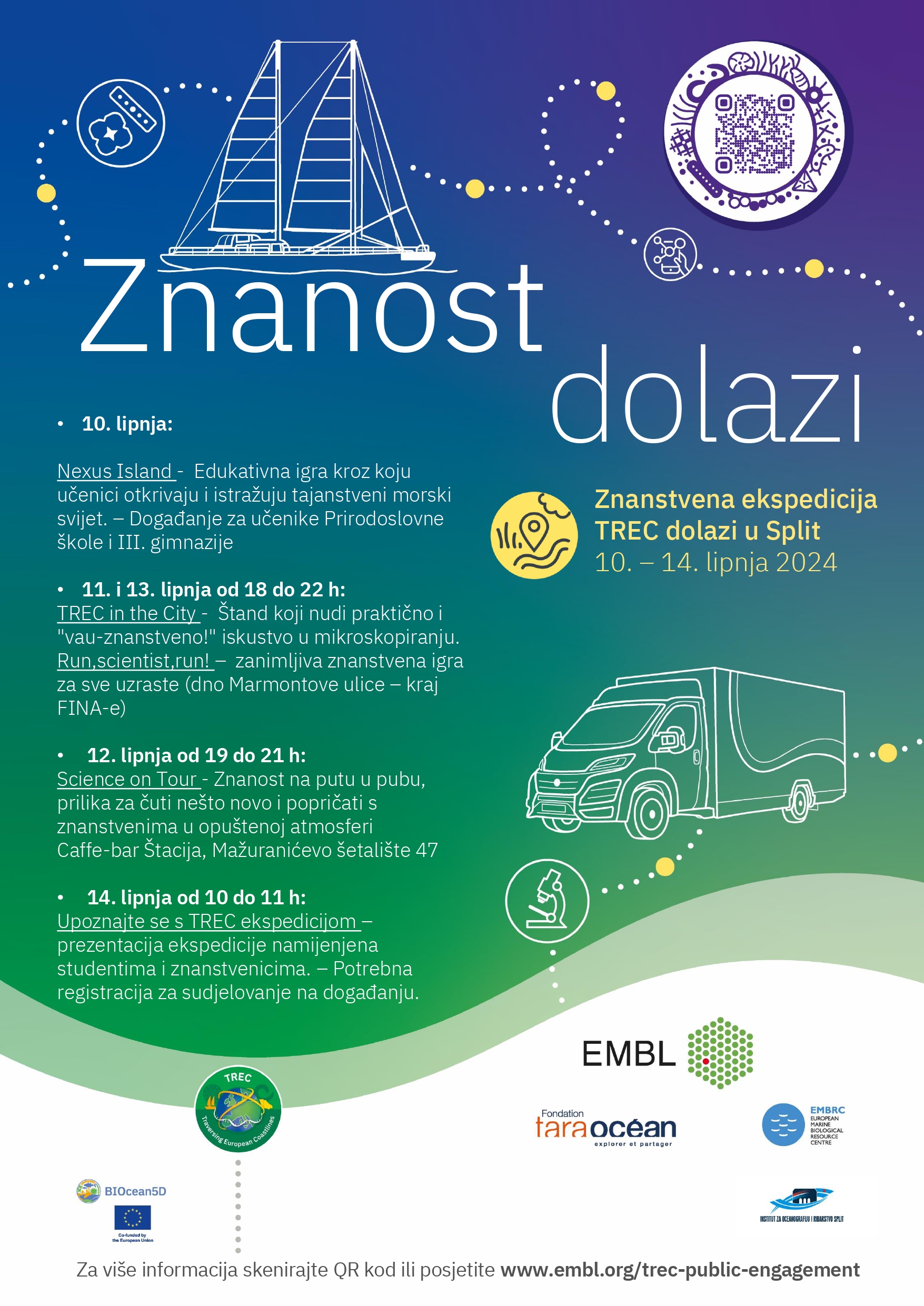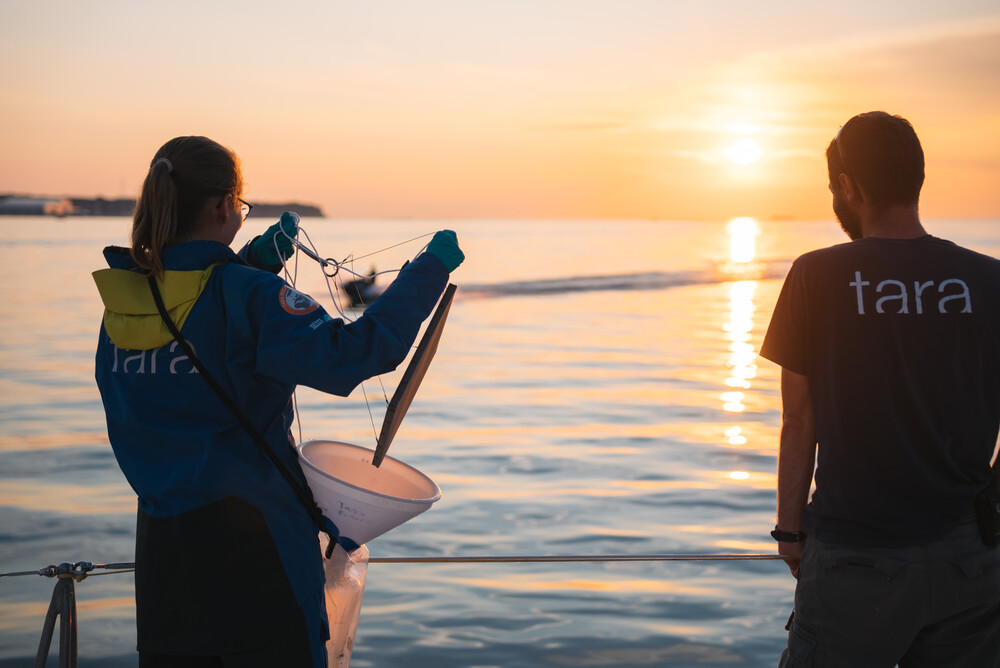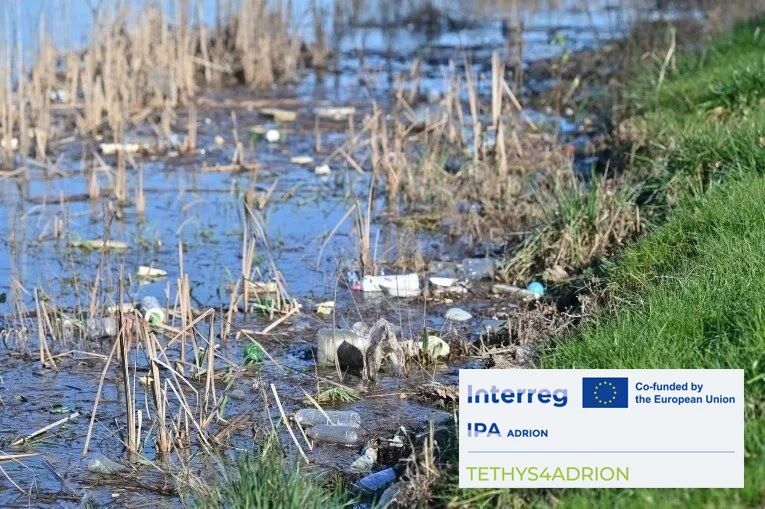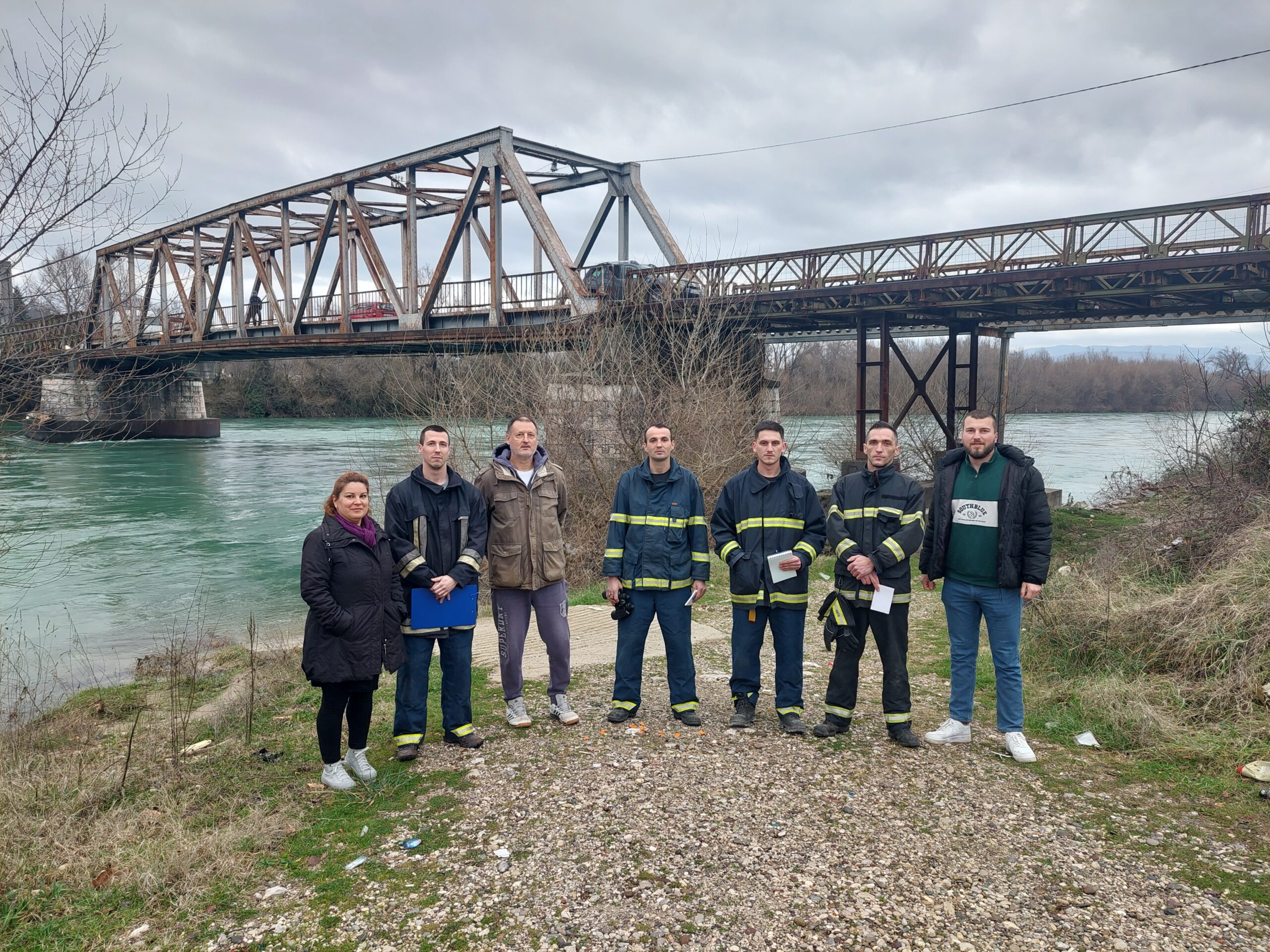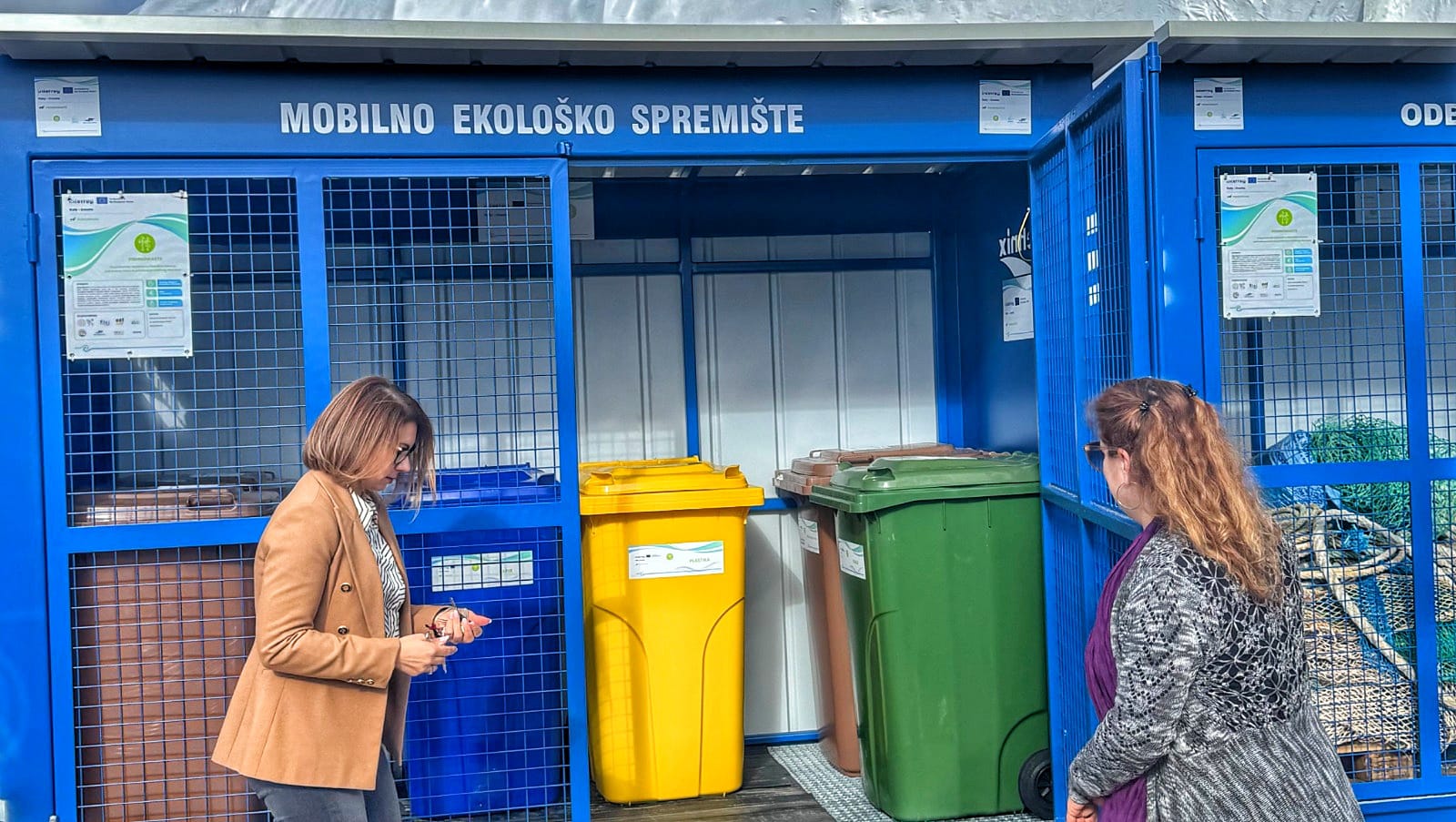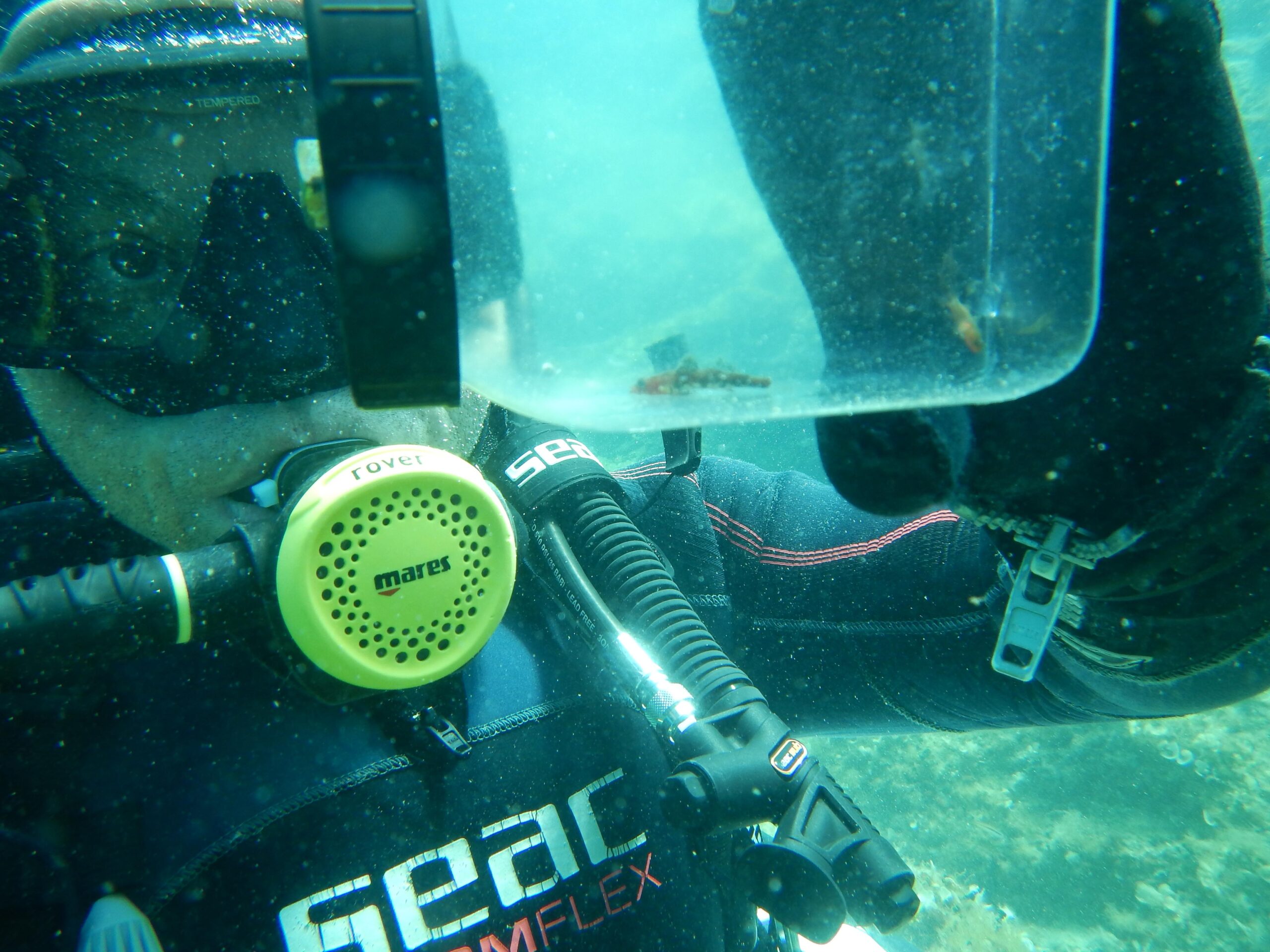The TREC project focuses on understanding coastal biodiversity and its response to natural and man-made environmental factors, from molecules to the entire ecosystem. In addition to European scientists who will be conducting research in Croatia, scientists from the Institute of Oceanography and Fisheries in Split will also participate. During the researchers’ stay in Split from 10 to 14 June, a rich program will be organized for citizens.
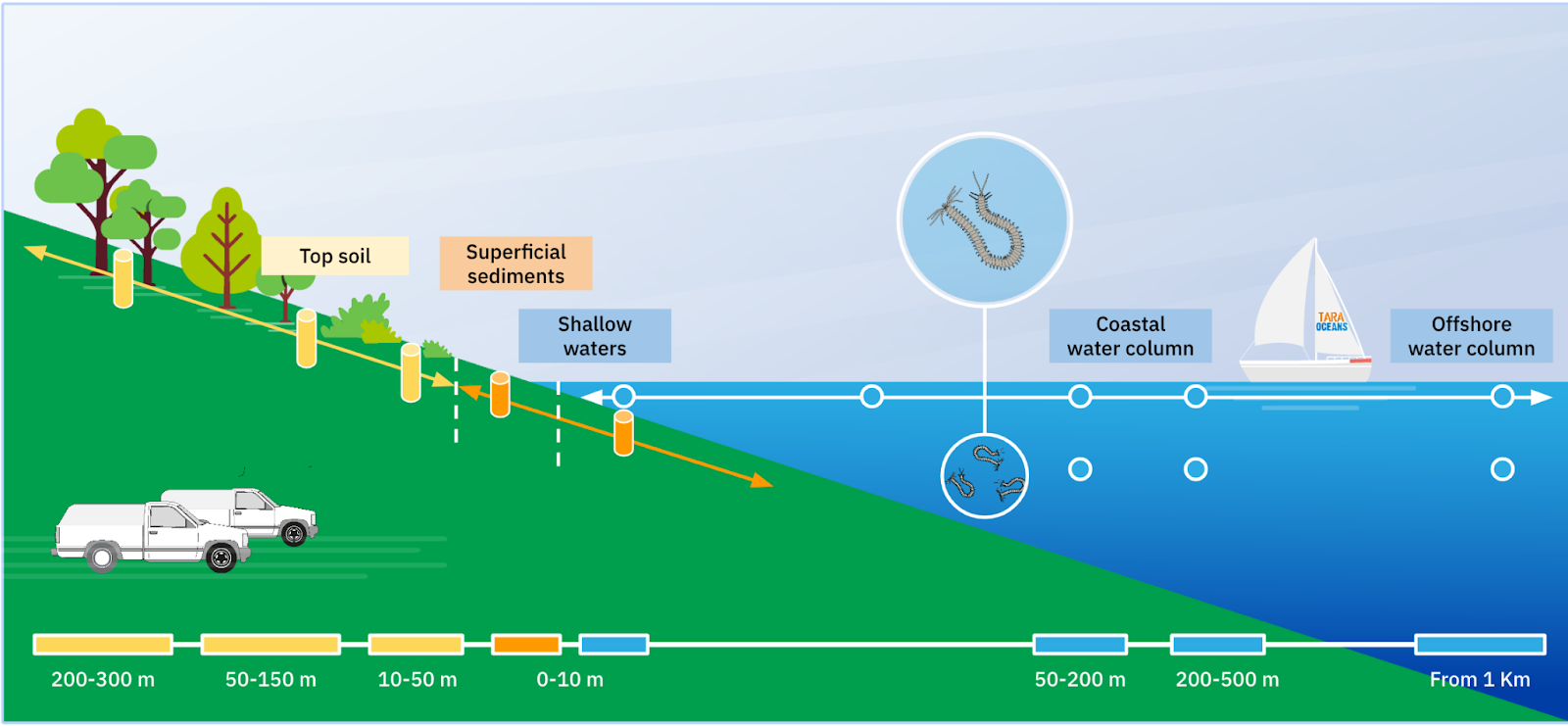
Coastal areas are directly affected by human activities. Various types of pollution have incalculable consequences for the health of the coastal ecosystem. Despite decades of scientific research, there are still many unanswered but important questions, especially on the effects of human activities on biodiversity at the micro level, but also on the molecular mechanisms involved in the feedback between organism and environment.
The international scientific expedition ‘Traversing European Coastlines’ (TREC) was launched in March 2023. The first part of the expedition focused on the European coastline along the Atlantic Ocean, the Baltic and the North Sea. During 2024, the expedition moved to the shores of the Mediterranean Sea and will soon arrive in Croatia.

TREC is the first project of its kind to study coastal ecosystems across the entire European continent. The expedition will provide a broader and deeper understanding of how coastal ecosystems respond to the various natural and human challenges they face.
The TREC expedition is led by the European Molecular Biology Laboratory (EMBL) together with the Tara Ocean Foundation, the Tara OceanS Consortium and the European Marine Biological Research Center (EMBRC). It brings together more than 150 research teams from more than 70 institutions from 21 countries. In Croatia, the expedition will be carried out in the presence of scientists from the Institute of Oceanography and Fisheries from Split, which is the local partner of the TREC expedition. During their stay in Croatia, samples will be taken at 4 different locations around the Dalmatian coast.
The European scientists will come to Croatia with mobile laboratories and the research vessel “Tara” and bring the entire laboratory to the sampling site instead of transporting the samples to distant laboratories. As part of the project, seawater and sediment samples as well as soil and air samples will be collected in the area of Ražanac, Split, Podgora and the mouth of the Neretva River from June 11 to 17.
All samples collected during TREC will be used for basic and non-commercial research purposes, and the project will create open data sets on microbial biodiversity. All datasets and results obtained will be freely available to enrich current knowledge on coastal biodiversity, which will also facilitate the search for indicators of coastal ecosystem health and the development of pollution mitigation strategies. In order to bring their research closer to a wider audience, an extensive program for citizens will be organized during the expedition’s stay in Split from 10 to 14 June. Scientists from the Institute of Oceanography and Fisheries, together with their European colleagues, will organize games and workshops for the youngest, as well as lectures informing the interested public about various topics related to the marine ecosystem and the TREC expedition itself.
